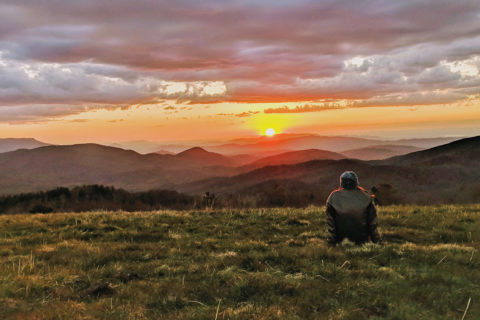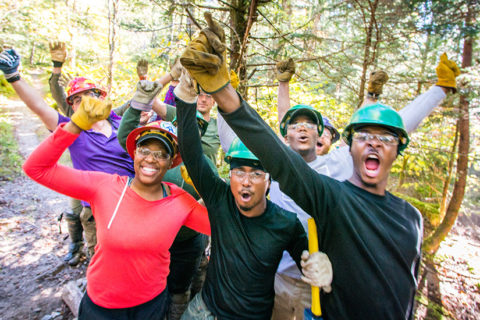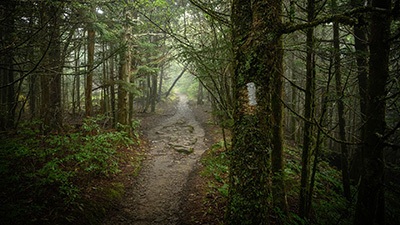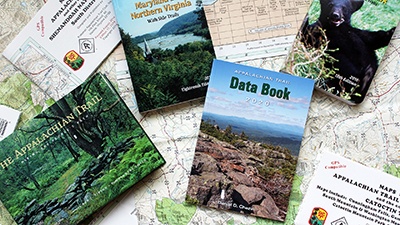By Amanda Wheelock
The Next Generation of Volunteers
July 1, 2020
As we look forward to our second century of managing and protecting the Appalachian Trail (A.T.), the importance of training future Trail stewards and advocates is one of the Appalachian Trail Conservancy’s (ATC) top priorities. As the popularity of the Trail grows, with over three million people visiting the A.T. per year, it is vital that the future generation of Trail stewards is given the opportunity to experience, work on, and fall in love with the mesmerizing beauty of the A.T. After all, it is their legacy.
The ATC is committed to welcoming, training, and supporting the next generation of Trail volunteers through a variety of programs and opportunities, taking into account variables like a person’s level of experience with the outdoors, their familiarity with the A.T. and environmental stewardship, and their personal preferences and abilities. Here are a few ways we are working to nurture a stewardship ethic that will last a lifetime:
Making Volunteering Easier
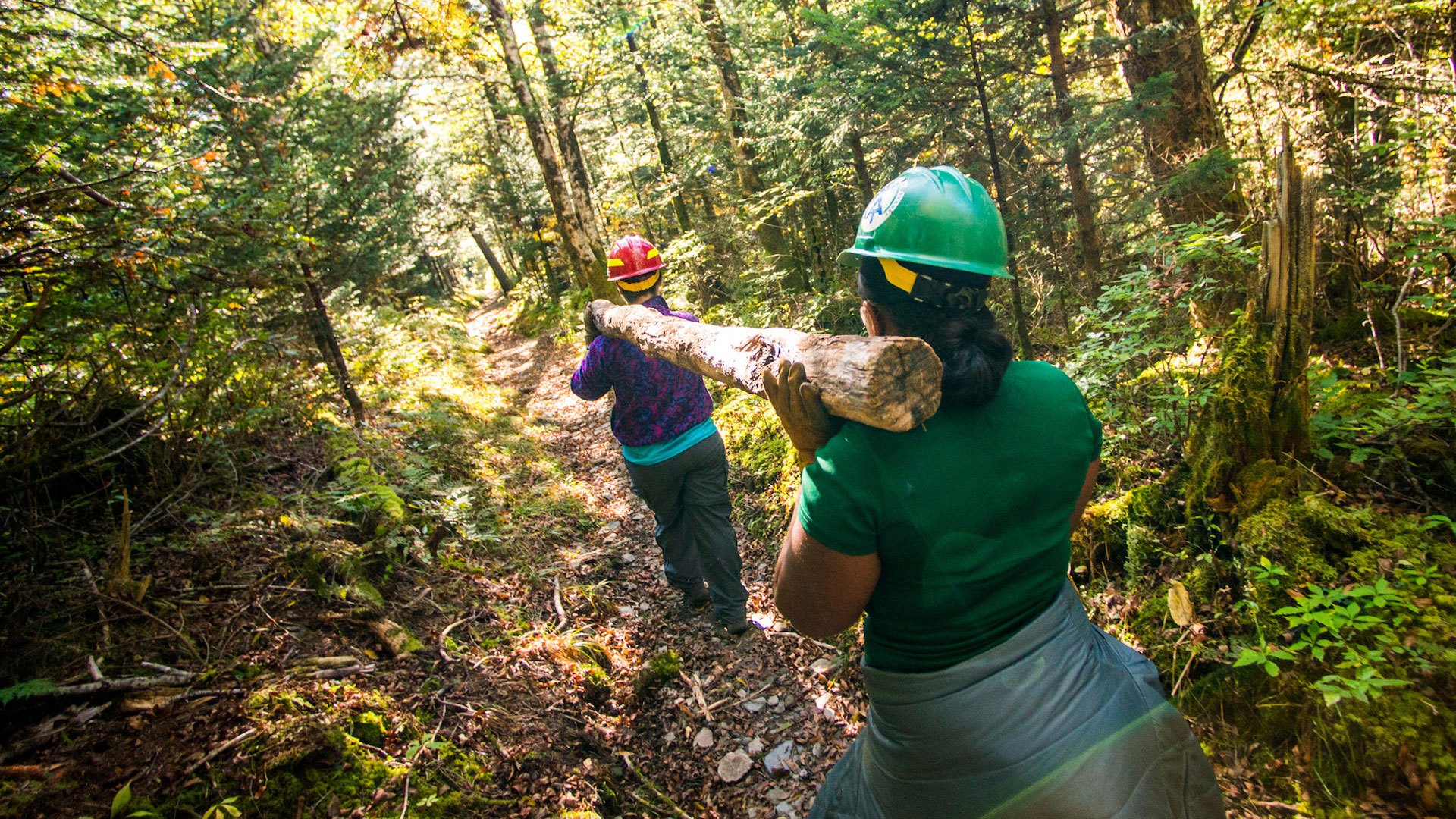
One of the largest hurdles for potential volunteers is knowing how to take that first step. Last year, the ATC helped address this with a new online platform for volunteer opportunities. Potential volunteers can search for opportunities by location, date, and activity type, and even sign up to receive notifications about new volunteer opportunities posted in their area. This makes it significantly easier for potential volunteers to find out how and when they can help steward the A.T.
Beyond being able to find opportunities, committing to regularly scheduled volunteer work has proven difficult for students, young professionals, and many others whose schedules require flexibility. To adapt to these needs, our longstanding crews, such as Konnarock and S.W.E.A.T., provide short term opportunities for volunteers who cannot make the long-term commitment required of section maintainers. Because crew members receive food and “rustic lodging” (read: tents), serving on a crew can be a budget-friendly option for young people looking to spend time outside while gaining teamwork and environmental conservation skills. For those who can’t afford to take time off work to steward the A.T., conservation corps such as Greenagers, the Maine Conservation Corps, the Vermont Youth Conservation Corps, and the Student Conservation Association provide employment opportunities for those wishing to learn conservation and trail work skills, even without prior experience.
Starting Early

Each year, ATC-led regional youth summits in several Trail states bring young people together to experience and learn about the A.T., outdoor recreation, and stewardship. For some, these youth summits are their first experience with hiking and camping. For others, it is a chance to greatly expand their knowledge of Trail maintenance and environmental stewardship, as well as to explore future careers in conservation. During the summits, small groups of students work together to create a plan for sharing stewardship with their communities once they return home. In Massachusetts, one group of students planned and constructed a nature trail at their school, and in North Carolina, youth from the first year’s summit created a council to help organize and lead the following year’s summit and support its goals year-round. These examples highlight the goal of the summits: to teach youth how they can make a positive impact on the world around them.
Finding New Experiences Together
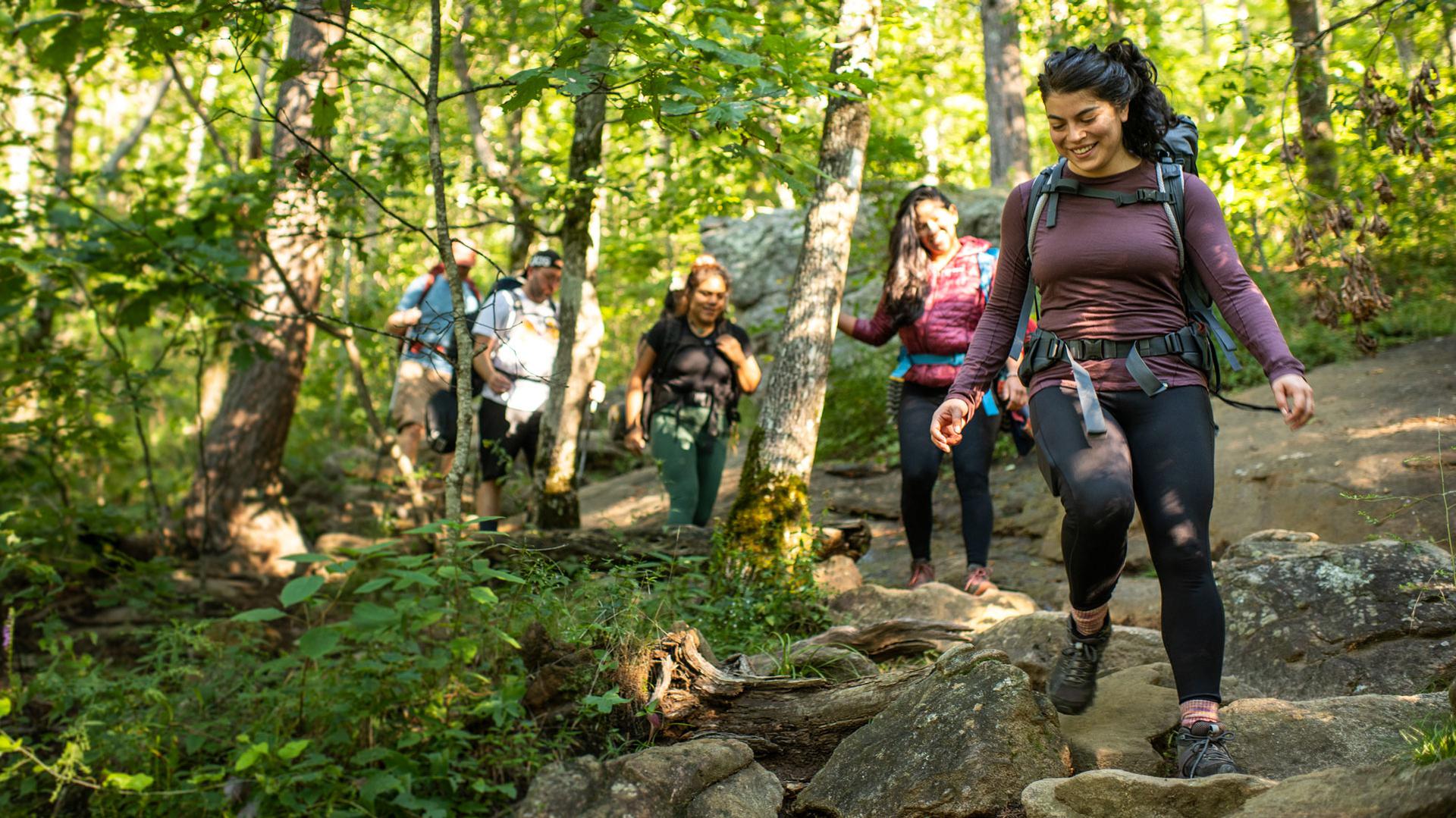
Affinity groups were created so people with shared identities and interests could connect with each other and, ultimately, connect to the Trail. Hikes, workdays, and other events sponsored by groups such as LatinXHikers and Wild East Women provide a forum for new volunteers to learn stewardship skills in a comfortable and supportive space, and for experienced volunteers to mentor people they share a common identity with. By supporting these affinity groups, the ATC aims to create spaces for people to connect as hikers and as future stewards. Members of affinity groups develop the skills they need to build confidence in their hiking and stewardship skills — confidence they can then carry with them into the greater A.T. community.
Incorporating Perspectives
The Next Generation Advisory Council directly supports the ATC in its efforts to engage with a younger and more diverse audience. “NextGen” is composed of fifteen young, diverse leaders aged 18 to 30 years old who advise the ATC in creating more inclusive and broadly relevant communications, advocating for stewardship of the Trail among their peers, and forging new partnerships with like-minded organizations. NextGen’s positive impacts are felt in a variety of ways, from boosting advocacy efforts like Hike the Hill to bringing perspectives to the ATC Board by participating in committee discussions.
While many of these programs and opportunities have been postponed or canceled due to the COVID-19 pandemic, we look forward to re-engaging future volunteers when it is safe to do so.
From the very beginning, the A.T. was created with a primary goal in mind: to make sure a natural place we love and benefit from is available not only for us, but for everyone after us, in perpetuity, who seeks fellowship with the wilderness. This goal simply cannot be met without transferring the ownership of the Trail’s protection to the next generation. Through the work mentioned above and other programs, the ATC has been successful in broadening the opportunities for new volunteers to fall in love with the Trail as we have, but we still have a long way to go — and we look for dedicated youth to help lead us on this journey.
Do you know a member of the next generation who is looking for a way to get involved in environmental conservation? Encourage them to find an A.T. volunteer opportunity right for them at appalachiantrail.org/volunteer.
Help us expand our outreach efforts to the next generation of A.T. volunteers by making a donation today.

